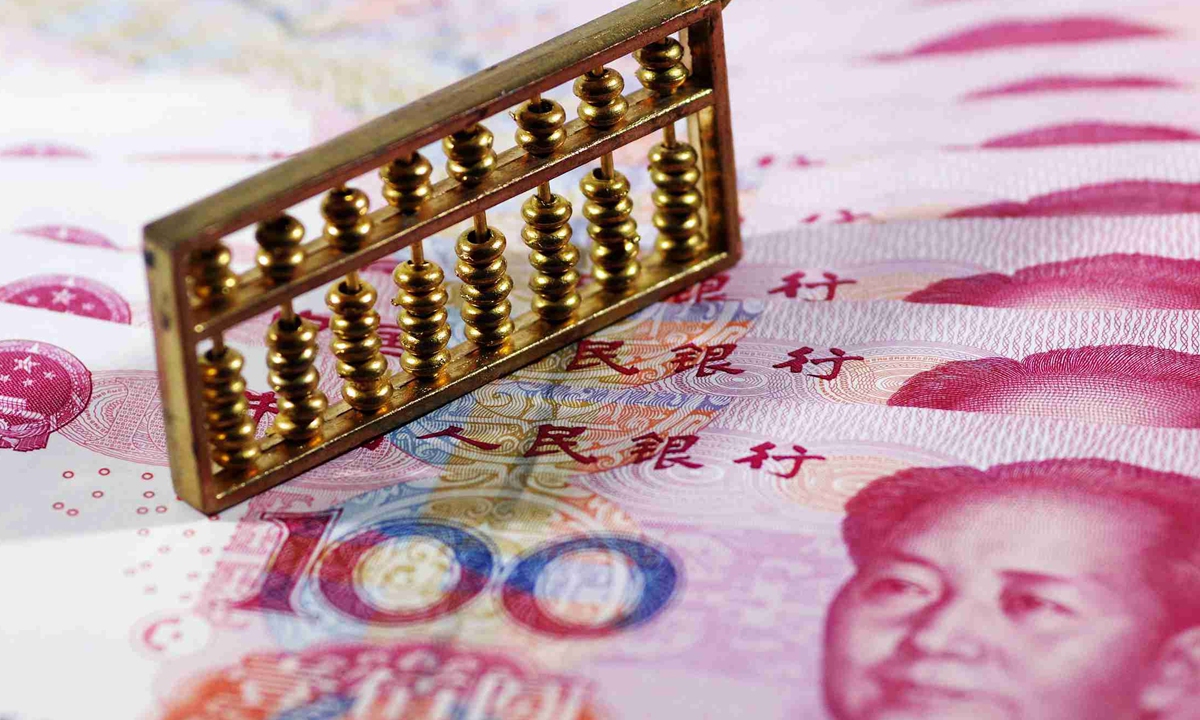
Chinese yuan Photo:VCG
The People's Bank of China (PBC), the central bank, announced on Monday that in order to maintain the stable operation of the bond market, based on a careful observation and evaluation of the current market situation, it has decided to conduct treasury bond borrowing operations for primary dealers in open market operations in the near future.
This signifies that the PBC's deliberations over the past half-year regarding buying and selling government bonds are entering the operational phase, according to media reports.
After the PBC conducts treasury bond borrowing operations for primary dealers in certain open market operations, these bonds can be sold on the secondary market, experts said.
Selling the bonds will help stabilize long-term interest rates and mitigate interest rate risks, while enhancing market confidence in China's economic growth, experts said.
The central bank's move suggests that it may conduct treasury bond selling operations in the open market as early as this week, Ming Ming, chief economist at CITIC Securities, told the Global Times on Monday.
"With 10-year government bond yields reaching historic lows, selling the bonds will help stabilize long-term interest rates and mitigate interest rate risks," Ming noted.
At the 15th Lujiazui Forum held in Shanghai in June, PBC Governor Pan Gongsheng addressed the need to monitor "the mismatched maturity and interest rate risks associated with non-bank entities holding large amounts of medium and long-term bonds." His remarks highlighted the central bank's deep concern regarding long-term bond yields, stcn.com reported.
The central bank's move on Monday came as concerns over long-term bond yields were raised during the Lujiazui Forum, Hu Qimu, a deputy secretary-general of the Digital-Real Economies Integration Forum 50, told the Global Times on Monday.
The PBC's move is expected to improve market expectations and direct funds away from the bond market while facilitating capital inflows into the stock market to bolster the overall capital market, Hu said.
"Furthermore, this move signals policy intent to enhance market confidence in China's economic growth," Hu added.
Since the start of 2024, the PBC has frequently voiced dissatisfaction with current long-term yields, stressing the importance of monitoring their fluctuations amid the economic recovery, according to media reports.
For example, on May 31, the PBC, as reported by the Financial News, a Chinese media outlet under the central bank, quoted industry insiders who suggested that if long-term government bond yields continue to decline, it is not a favorable time to buy.
Conversely, if bank deposits significantly flow into the bond market and demand for risk-free assets continues to increase, the PBC may consider selling government bonds when necessary, the report said.
Dong Shaopeng, a senior research fellow at the Chongyang Institute for Financial Studies at the Renmin University of China, told the Global Times on Monday that the central bank's approach helps smooth bond prices, injecting positive signals for the stable and healthy development of the capital market.
"Whether short-term or long-term government bonds, the PBC signals monetary policy adjustments through this operation," Dong said.
"Buying and selling government bonds further activates the capital market, directing more funds toward the real economy," Dong said, noting this should be a positive step toward the healthy development of the capital market.




